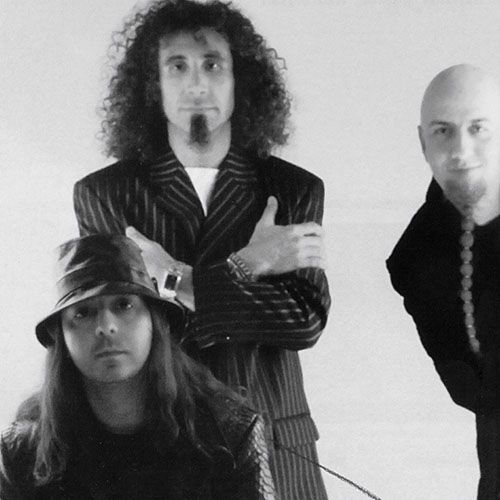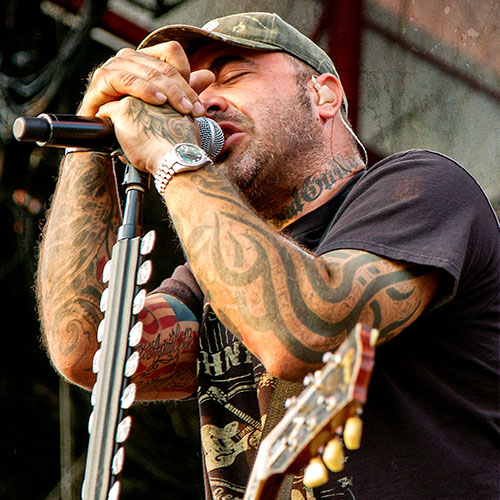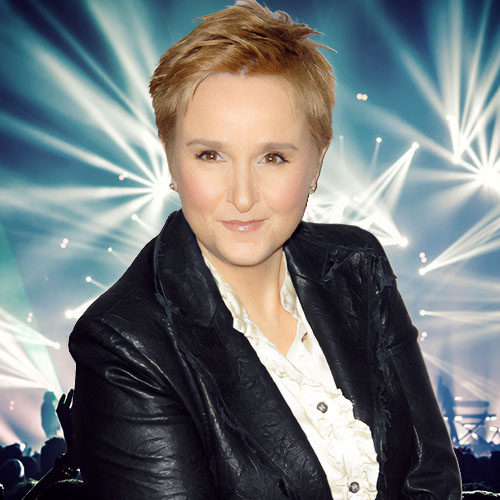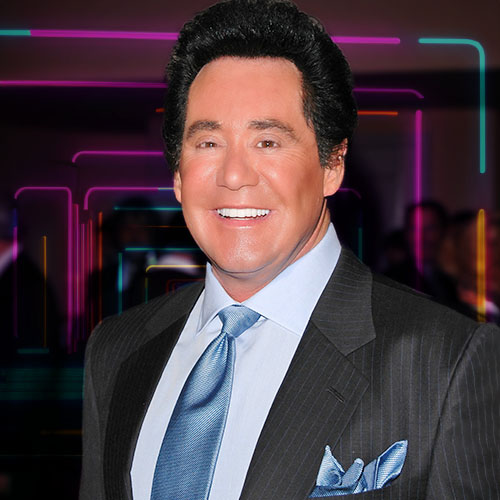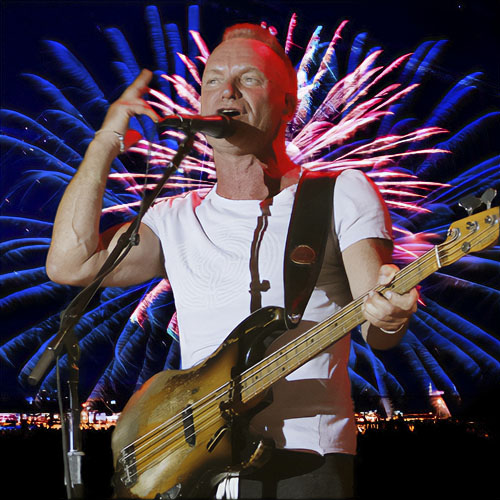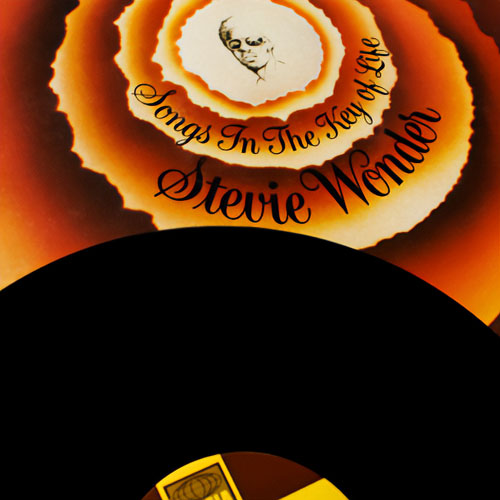“I had wonderful years. Then I had not such wonderful years…”
Ivana Trump
In the eighties, when I first met Ivana Trump, she was one of the decade’s more outspoken and — from the male perspective — beguiling holdouts against feminism. Overseeing her husband’s Atlantic City casino business, the former Czech ski racer set ferocious efficiency standards. But in common with the heroine of For Love Alone, the novel that marks lvana’s debut this spring as an author, she studied gentler qualities in her personal relationship with Donald Trump.
“I always stand by my man…. I’m a very traditional European wife,” she declared.
Even when she took charge of the $50 million restoration of Donald’s latest New York acquisition, the Plaza Hotel, the job had a whiff of willing subservience to it. What was her salary? “A dollar a year,” quipped the then proud husband (worth circa $3.7 billion during that boom era), “and all the dresses she can buy.”
As she reveals for the first time in Penthouse, Ivana, who has been competitive ever since she fought her way to life (she was born two months prematurely, on February 20, 1949), had misgivings even then about her decision to subsume her own goals to those of her even more combative spouse. And now that the cold mathematics of the Trump divorce and the Trump Organization’s debt restructuring are behind Ivana and Donald — divorce being an un-pretty process even for millionaires — she is issuing her personal declaration of independence. Her settlement, reportedly totaling $25 million, includes a 45- room Georgian mansion in Greenwich, Connecticut, as well as the right to use the palatial Fifth Avenue triplex atop Trump Tower, where we recently chatted in a salon with onyx walls, marble pillars, and gilt Louis XV-style chairs.
So Ivana Trump doesn’t exactly need to work. However, to quote her steadily expanding resume, she is not only an author but a lecturer, philanthropist, and entrepreneur in her own right. While she has a new man in her life, Italian industrialist Riccardo Mazzucchelli, she says that she is in control of that life, and that’s the way it is going to remain.
For Love Alone, published under her two-book contract with Simon & Schuster’s Pocket Books division, can be read as a sexy candidate for the best-seller list, in the tradition of Judith Krantz (whose launch party for I’ll Take Manhattan was hosted by the then married Ivana and Donald 66 stories below their triplex aerie, in the tower’s blush-pink marble atrium). But it might also be a parable.
The book’s heroine is a sapphire-eyed Czech skiing champion, whose fabulous Communism-to-riches saga, culminating in her emergence as a media goddess, begins when she defects to the West. She’s then courted by a ship-building heir who showers her with roses, champagne, and a mink coat.
Lonely and culture-shocked by her move to America, Katrinka Graham lives on Fifth Avenue. In the happier years that follow, she is toasted by the gossip columnists as she becomes her husband’s right hand in his. business ambitions — only to discover that her girl-friend has stolen her husband.
Raised in Gottwaldov, a factory town near the Austrian border, Ivana was a fanatical skier almost from the time she could walk. In fact, it’s a miracle that she can still walk. Testing herself on dangerous downhill runs, she suffered five leg fractures. She was six when she entered her first races, making a Czech team at 12 that often competed in Western Europe. It would have been easy to duck the team’s minders and walk to freedom. But, confirming the whispers that have made the rounds in New York society for years, she chose a different way out. She married an Austrian skiing friend. The newlyweds never lived together, she says; after keeping up the pretense long enough to fool the gray Prague apparatchiks, and get Ivana a Western passport, they were divorced. The willowy young woman began making a career as a model in Montreal.
In 1976, visiting New York with a group of models to promote the Summer Olympics, she was impressed by the 28-year-old Donald Trump’s energy and old-fashioned values.
During their 13-year marriage, Donald and Ivana Trump became a symbol of American capitalism in its fullest flower. They had three children, and it’s the notion that Ivana is now raising them as a single, glamorous working mother — one wedded to her faith in the system that she says has benefited not only her but millions of other Americans — that has made this naturalized citizen a top draw on the lecture circuit.
Commanding fees that reputedly run as high as $20,000, she keynoted the 1991 Women in Business Seminar for a crowd of sales and marketing executives. (“As a Senior Executive Vice-President in the Trump Organization,” explained a program note, “Ms. Trump … established new industry standards for design and excellence.”) There was also her speech on “Shattering the Cinderella Myth,” sponsored by a Miami women’s center. (“What she has accomplished,” said that program note, “illustrates a modern woman’s struggle to overcome fears.”) Recently, she was one of three featured speakers — the other two were Margaret Thatcher and Desert Storm’s General Thomas Kelly — before an audience of 1,100 stockbrokers at the Mackenzie Financial Corporation’s annual conference in Canada. “She talked about determination and hard work,” says a ,spokeswoman for Mackenzie, a mutual-funds concern. “People really enjoyed her.”
As C.E.O. of her own corporation, Ivana Inc., Ivana is stamping her name (which she has trademarked) on clothing, perfumes, and a skin-care line. The competition in the celebrity name-brand market is formidable, with previous entries ranging from Cher to Elizabeth Taylor. But her friends don’t doubt her consumer appeal. “In the eighties, Donald was the golden boy,” one of them points out. “Now Ivana is coming into her own. People see this glamorous woman who lives a life like something out of ’Falcon Crest,’ and yet this is real.” — Sharon Churcher
Tell us about writing your novel, For Love Alone. Did you base any of it on your own life?
Well, let me say that I drew from experience. It’s not my life, obviously. You know, for instance, that one secret which Katrinka has [giving birth to an illegitimate child] is a key element in the plot. I haven’t had anything close to that happen to me. But I am very fortunate to be able to live in a capitalist country now, although I lived half of my life in a Communist country and I know the difference.
So I’m able to understand how people under this type of repression, if they wanted to achieve anything in life, had to break out of the Communist system. You could do it, really, in only three ways: through the [performing] arts, like becoming a great pianist or fabulous ballerina, and then they’d send you out to represent the country. You could be great in sports … and they’d send you out. Or you could marry a foreigner and then they would give you a passport. It wouldn’t help, for example, if you were a great architect — they wouldn’t send you outside, so you wouldn’t have the experiences and you wouldn’t be able to compare what those two worlds are about, and obviously, you’d never be able to defect.
Another thing that helped me with the book was my experience in the world of high fashion. I’ve been a model … I’ve worked in showrooms, on runways, done print work — in fact, I’m still very much involved with it.
Then there’s my business experience. I have run a business for the last ten or 12 years, and I’ve certainly come to know that world. And then, of course, sports. I would represent Czechoslovakia in ski races. So my being part of these four different worlds certainly gave me the background for the book.
How old were you when you decided you wanted to leave Czechoslovakia?
I cannot say exactly when I decided to leave, but I knew that I wanted to have a career in sports, and I also knew that I wanted new opportunities…. I realized that if you have your education and if you work hard, do your homework, you really can achieve almost anything in life. You can’t do that under Communism. You could not excel in a Communist country to your potential.
Critics often say that everyone’s first novel is about themselves. Why isn’t yours?
Quite frankly, I wanted to make a point of not writing about myself and my life story, because I went through some rough times, and the last thing I want to do about my divorce is to write about it. I also went through many fabulous years in Czechoslovakia and in my marriage. I didn’t want this to be my personal story. I also believe that I’m too young to write my autobiography.
Didn’t you ever have the temptation to use the book to get at people you don’t like?
Oh, absolutely not. I’m not a vengeful person. I generally like people, I enjoy them. I don’t think I have enemies. If I dislike someone, I try to stay away and not let them know, if possible. But I definitely don’t hate. It’s not worth it.
Does telling stories come easily to you?
Yes, absolutely. Let me give you an example. With my book, I actually gave the publisher two endings. And after we decided which one was best, I took the second one to use as the beginning of my next novel, which will be a sequel to this one. I already have in my head three-quarters of the second book, and I’m having such fun going a little bit deeper and deeper. It’s just fascinating to me.
So readers will have to wait to see how everything really turns out?
That’s right.
In the novel, Katrinka’s father is quite demanding. Was your own father anything like him?
No, my father was very easy, actually; he was totally the opposite of the father in the book.
But didn’t he send you to work in a shoe factory?
He did that, but it was really because I wanted to get extra money. What’s really interesting about my father is how he was punished because my aunt defected to the West. My father was an engineer and he was really very good. But it took him more than double the normal time to become the head of his division because of my aunt. It was simple as that.
Were you in the young Communists, the Pioneers?
We always belonged to the Pioneers because it was like the Boy Scouts. It really wasn’t Communist. …You’d become a Communist later, in the university. [But although Ivana never joined the party, she wasn’t penalized.] I was so good in sports and I traveled to all the best countries. I never thought of defecting and I never said a bad word against the authorities. They trusted me, and I did good for the country. So I never had a problem.
You didn’t think about defecting?
I was quite happy, and I was getting an incredible education. In fact, if I had to do it again, I would do exactly the same thing. But after some time, when you’re finished with your studying, you think, where do you go from here? You cannot achieve anything more, you stay on the same level from that moment on.
So you got out by getting married?
Yes. I married a friend from the Austrian national ski team; it was totally pre-planned, pre-arranged. But we had to make sure the Communists believed that the marriage was absolutely for love.
How old were you then?
About 22. It was just after I finished my university. He left for America and I left for Canada, and we were married for about two years. We wrote to each other at times. I obtained a passport, and I made sure that my parents could visit me. That was why I didn’t defect. I was an only child and I wanted my parents to be able to see me…. If I had talked about this [during the old regime], my parents probably would have been locked up, put in jail.
So when Spy magazine claimed you hid your previous marriage, the story missed the point as to why you did it?
They wrote that article to use me to get at Donald and, yes, they totally missed the point. … [But] my immigration papers all said that I was married before, and when I married Donald I said on that certificate that I was married before. I never hid it from anybody. I just wasn’t talking about it in articles, because I could have put my parents in jeopardy. Spy never interviewed me. Spy never talked to me.
In your book, some of the best descriptive passages are when Katrinka comes to the United States and she goes through this incredible culture shock. Did that also happen to you?
Again, it’s a fiction. I had lived in Montreal and it is certainly a very cosmopolitan city…. Canada, America, it’s really the same.
“For whatever reason, it really does take a secure man to be happy about his wife’s career, especially if her career is better and bigger than his own.”
Let’s go back for a minute and talk about your athletic training. Was it stricter than the kind of regimen that kids go through in Western countries?
It was extremely strict. If people would see you drink alcohol in any form, you would be expelled from the team.
There’s a wonderful passage in the book where you talk about Katrinka having to behave like a nun. Was that the situation? Athletes weren’t supposed to have sex?
That was quite common in Communist countries. No. 1, you had no time for men because you trained eight hours a day and you traveled most of the time, and all your energies were really spent on the training. I cannot speak about the boys, but we girls were so tired by the end of the day that you just went into a coma by nine and slept ‘cause you were just exhausted. Then, when we got older, we were told it just takes too much out of you, too much energy. You know, it’s not so different than what they tell athletes in America — they are advised not to have sex the day before they play football, for example. But we had no choice if we didn’t want to be caught and thrown out of the team. There was a lot of competition and also a lot of jealousy, so even if you did something like that, there would be another person on the team who would know about it. They could turn you in.
Everyone was spying on everyone else?
I don’t know if it was spying, but the word would get back to the coaches — put it that way. I am not totally against this kind of prohibition. If you really want to be a successful athlete, you should have the least distractions you possibly can. You have to really concentrate on what you’re doing. If you are a young athlete and you are among men, you obviously have the natural sexual desires. If you start to fool around, you’re not going to concentrate. Everything has to be in moderation. I cannot talk about men and their needs, but I know about women’s needs. If you go and you start to date a boy, you get emotional — at least I do, and I know other women do. And when women get attached, they fall in love, and it definitely takes away your concentration. It definitely does distract you, no doubt about it.
As a teenager, did you have any fun apart from sports?
Sports were my life.
So going back to the book, which you say is fiction, who did you write it for? Is it a “women’s book”?
No. It’s a commercial novel and I think it will appeal to all audiences. It’s a wonderful love story — which delves into relationships and feelings — for men and women.
What about relationships in real life? Do you feel that men and women are different?
Well, let’s talk first about friendships. I always had a lot of women friends. You usually read about relationships between men and women, but very rarely about relationships between women.
Do you think a successful woman can be married? Can it work?
It’s really a very new issue. I think this is actually the issue for a woman in the nineties — it is going to be the hardest thing for her to do, to balance her family life and her career. I don’t think I have seen one really successful woman that I can remember who had a great career, had a family, and had a good marriage. Maybe I just didn’t meet that person…. But I cannot think of one, so I think this is going to be the hardest test for the women of the nineties. I believe it can work, it definitely can work, but it will take a lot of work. Sometimes you might spend more time on your family and less on the career, and then you might spend more time on the career and less on the family, so you try to balance it. … And, of course, the man in your life has to be supportive and has to be secure. If he is not secure within himself or, God forbid, if you make more money than he does, I haven’t seen one so far like that that has worked. For whatever reason — it really does take a secure man to be happy about his wife’s career, especially if her career is better and bigger than his own…. I have met a few men recently who don’t mind at all that I work and, actually, they are my biggest cheerleaders because they are very successful in their own fields. They have achieved, and they frankly get a kick out of me accomplishing things and enjoying myself.
You said once that you’re not a feminist. Has getting divorced changed your mind about that?
I have changed a little bit. …I was raised in the traditional way that dictated that the man in the family was a provider and the woman was a homemaker, taking care of the children. The man made the decisions. Then I came here, and even though I always looked up to my man, if he wanted to do certain things that I really didn’t like, then I wouldn’t do them…. But I worked the last 13 years for my ex-husband, the children, and for the empire, and I was doing certain things which I would not have done by my choice. I’d much rather have been writing a book …
Than running a casino?
Yes, but I knew it was very important to Donald’s business. I knew that I could help contribute, and I did it and I had fun, too, and I had great experience. But now I’m in a fabulous position where I don’t need a man for financial reasons, as a lot of women do, unfortunately. And I don’t need a man for starting a family — I have three beautiful children. And I don’t need a man for my career. I have quite a nice one, thank you. What I need a man for now is love and friendship and companionship. So I’m in a great position right now: At 43 years old, I’m in a great time of my life and I’m proud of it.
So would you consider yourself a feminist now?
I don’t call myself a feminist. I don’t really see it being one way or the other. I don’t need a man to take care of me, but I don’t want to be without a man in my life. I guess it’s just a matter of give and take.
So you would never totally give into a man again?
What I want now is somebody who will understand me, support me, help me. And I want to do exactly the same for that person… I don’t want to be dominated.
What are you telling your daughter about that?
lvanka is a very smart, loving, caring girl. She saw it how it was before; she sees it now, and she sees me very happy, that is what is important to her.
What kind of choices would you like her to make? Would you like her to marry young, or do you hope she ’II be a career woman?
I think she just has to do what she has to do. I lead her as far as I can, and I give her wonderful experiences and education. And if she finds somebody she wants to marry, I’m not going to stop her, because that’s her life and her happiness.
You’ve had to make a few changes in your life, haven’t you? Money was no object for 13 years. Have you had to change your lifestyle, to cut back?
Not really. At a certain point, if you have a comfortable income, the exact amount of money doesn’t make much of a difference. If you have $10 million or $15 million, it doesn’t make much of a difference, because how many cars can you drive? How many steaks can you eat? As they say, money alone does not buy you happiness.
“I lost my privacy a long time ago…. You have to understand that you are a public person, that people are watching you … and it’s a big burden on you, definitely.”
Can it make you unhappy?
Money is a tool. It doesn’t make you unhappy, but it gives you the opportunity to be responsible. You have to know how to invest it and it becomes like a business that you have to take care of.
And can it be used in a marriage as a power tool?
I cannot talk specifically about my experiences [at press time, Donald Trump was battling to have an appeals court uphold a provision in the divorce settlement that banned Ivana from discussing her marriage], but history shows us that men have used money to their advantage against women in marriage for centuries. I have received countless letters from women around the world actually telling me their own life stories. And about 80 percent of them go like this: “I am 45 years old, my husband divorced me, and I have never had a joint checking account. I never had money, I never needed it because my husband supported me. Now he is gone and I have three children — what do I do?” Does that answer the question?
Are you going to remarry?
I will if I find the right man.
What about your current one?
I have a boyfriend, but I’m not thinking about remarrying because I have just gotten divorced.
Are you in love again?
I’m in love. And I have a great time.
After your experience living and working under Communism and capitalism, what are some lessons that each system might learn from the other?
Let me start by stating a fact: There are more poor people in New York than there ever have been in Czechoslovakia. So I think that both systems have aspects that are sometimes wrong and sometimes right. The idea that people should not be hungry and should be taken care of, that’s a good idea, that’s a Communist idea. The idea that a person should be able to excel using his or her brains, that’s also a good idea, and that’s the capitalist system. But the idea that a poor child here will never be able to achieve its potential — that’s sad. In Czechoslovakia that would not happen. So both systems have something which is right and something which is wrong.
You turned around the Plaza and made it once again a very beautiful and successful hotel. But it’s stuck in a city that’s falling apart. Have you ever thought about what you would do if you were mayor of New York?
I don’t know enough about politics to answer that, but I do know that New York City is not alone in having problems. The whole United States has a problem and the whole world has a problem … you can’t single out New York or America.
But the Japanese and Europeans do single out America.
I think they’re wrong, absolutely wrong. Both the Japanese and the Europeans are beginning to have a lot of problems also. I think the Japanese might be better off than America, but they are not as strong as they used to be…. I think they’re running out of money. Moreover, I don’t like anybody to criticize America, because I am American and I think we are trendsetters.
Still?
Yes, still. We definitely set the trends, we take care of the other countries. I don’t see another country around the world which is so good and so generous as America has been. I’m very proud and very protective of America. If somebody starts to talk bad about America, I’m the first one to defend it.
Getting back to your personal life, do you feel it’s fair to say that you are no longer defined as being a wife?
I can say that now I can do whatever I want to do. I choose what I want to do without any interference.
And do you enjoy being in the public eye?
You know, now it’s too late. I have no choice, so I might as well enjoy it. I lost my privacy a long time ago. So now you try not to regain it, because you cannot regain it totally, but you try to shelter yourself. But you also have to understand that you are a public person, that people are watching you — they’re expecting certain things from you and it’s a big burden on you, definitely.
How are you getting along with Donald?
He’s the father of my children and I wish him the best.
Would you like him to be your friend?
Of course. I’d like us to be civilized. I’m living my own life. I’ve had some unpleasant experiences, but life goes on.
Are you happier now than you were during your marriage?
I’m very happy now. I had wonderful times in my marriage. I had wonderful years. Then I had not such wonderful years. But I’m very content now. I have three beautiful children and my career, and I do what I want to do. There’s a man in my life and I’m not too old to enjoy it. I’m having a ball.
What is Ivana Trump’s ideal man, in general terms?
For me looks really don’t matter that much, but if a man is overweight, it shows a lack of discipline and strong will, and I like my man to be strong and secure. I also like a man who’s sensitive, loving and caring and cuddly — in short, very affectionate. Maybe because it’s so soon after the divorce, and I have been hurt, that I feel I want to emphasize sensitivity and caring and loving and support.
Do you think European men are more affectionate than American men?
It really depends on the person. You cannot categorize like that. I have found some fabulous American family men and I’ve found some incredible family men in Europe. Europeans probably have more affairs during marriages.
Do you expect people to be faithful in a marriage, or do you think it’s impossible?
After my experiences and a lot of other people’s, I would say if you get married at the age of 18 and you live with the person until you’re 60, it’s very unlikely that the man won’t have an affair during that period. I know a few couples who have so-called “open marriages.” I really don’t agree with that, but I know it is happening. Now being wiser and older and smarter, I think if it is your second marriage, maybe if you did have an extramarital affair before, you’ve learned the grass isn’t greener somewhere else. I have never cheated in my marriage. I wasn’t that kind of girl.
You’re a very beautiful woman, but does getting older worry you?
Not at all. If it did, I wouldn’t be forth-coming about my age. I take care of myself and I do have a set of exercises, and I’m just going to age proudly. I will do my best to look my best at any time and any age, but I don’t worry about getting older.
Do you want to answer the press speculation that you’ve had cosmetic surgery?
I think it’s a private thing, whatever anybody does for themselves. What I’m saying to American women is I do believe that one should take care of oneself. Plastic surgery is perfectly fine.
Do you think a woman can have it all?
I tried, I tried. But maybe I was young and maybe I didn’t balance it properly. Whatever — I never have any regrets. I look ahead. I don’t look into the past.
Should you wish to read more of the thoughts which run through the head of Ivana, we encourage you to do so. We rather approve of reading around here (which should come as no surprise). … Of course we have already reminded folks of Ivana’s philanthropic efforts in a earlier Legacy article, so feel free to start there if you missed it the first time around.

















